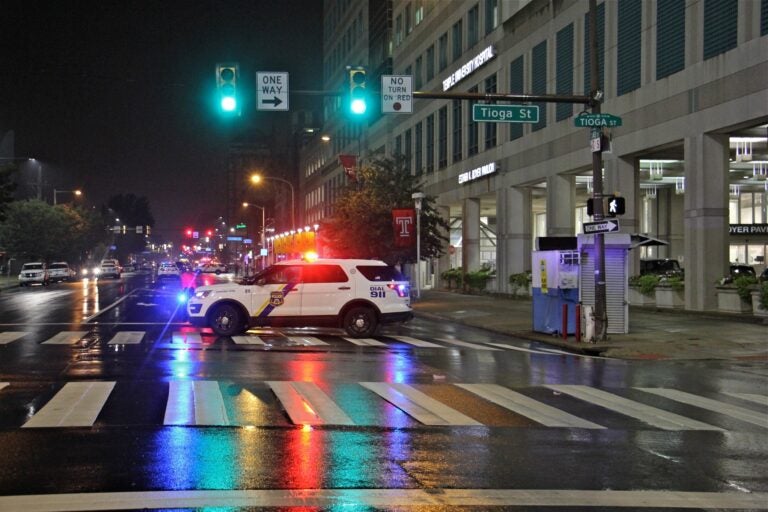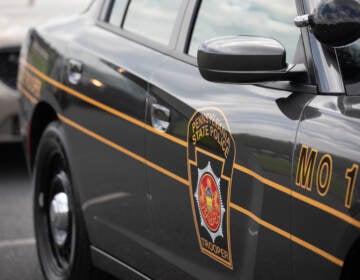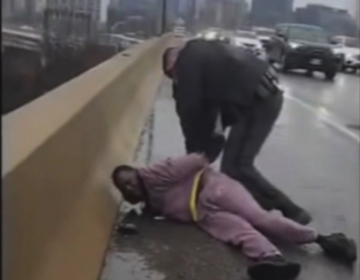A decade after lawsuit, Philly is still stopping and frisking
Ten years after it was sued for racial bias, the city still employs the controversial police tactic known as stop-and-frisk. Mayor Jim Kenney says he wants it to end. Will it?
Listen 14:45
Police stop traffic on Broad Street outside Temple University Hospital. (Emma Lee/WHYY)
We look back on the 10th anniversary of the Philadelphia lawsuit that released decade’s worth of data showing the racial disparities of stop-and-frisk. What have we learned from this lawsuit? And why is it important that we keep tracking this data? Longtime civil rights attorney David Rudovsky, who brought the suit a decade ago, says progress has been slow, but that he has some hope for improvement.

Hear the whole story on The Why
On why they brought the lawsuit
People in our office, civil rights lawyers, ACLU started to get a huge number of complaints from areas all around the city, from people who claim they were repeatedly stopped, they had done nothing wrong. And when they asked why they were stopped, police officers often said, we were just told anybody looks out of place, stop them. And if you have grounds, you can frisk them as well.
On what the city said it would do following the lawsuit
First, that they would retrain the officers, they would take disciplinary action, if necessary, against the officers who repeatedly engaged in stops without reasonable suspicion. They agreed to create an electronic database of all the stops. Before we were working from hard copy. Our team and their team would look at, each quarter of a year, several thousand stops.
On what actually happened
For the first several years, we were seeing the same estimates as to the number of bad stops, very high, 40 percent, 50 percent. They came down to about 35 percent a couple of years. But it was still the Nutter administration. And it was clear to me there was still resistance within the department of making fundamental changes in the period 2011 to 2015. When Mayor Kenney came in, we didn’t see much improvement.
On hope for a change
The events of the last year, the confluence of events, George Floyd’s shooting, the overreaction of police to protests here, which they’ve had to apologize for, their admission in this case that there is racial bias, not just racial disparities, which is a huge admission many, many cities wouldn’t do. That indicates to me, I don’t want to be too optimistic here 10 years into the case, that there is a change of views.
WHYY is your source for fact-based, in-depth journalism and information. As a nonprofit organization, we rely on financial support from readers like you. Please give today.






